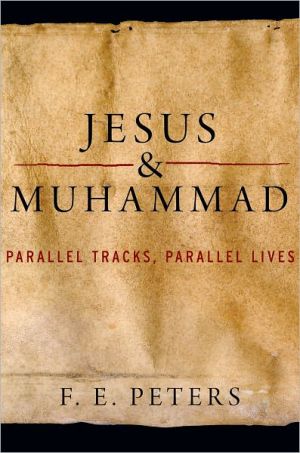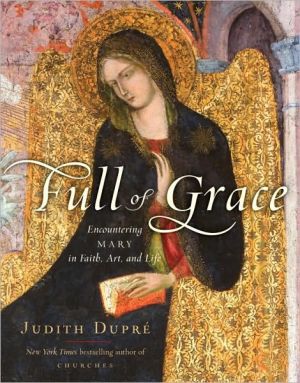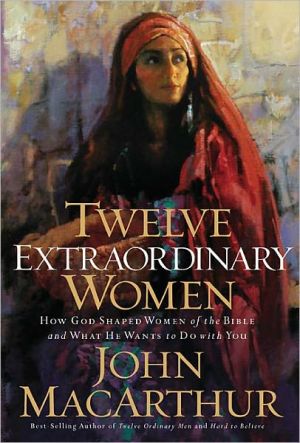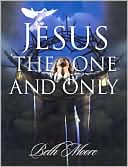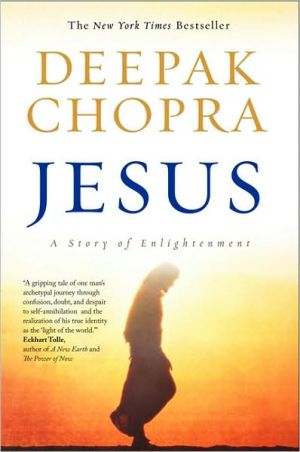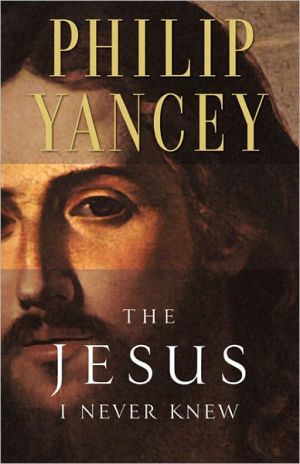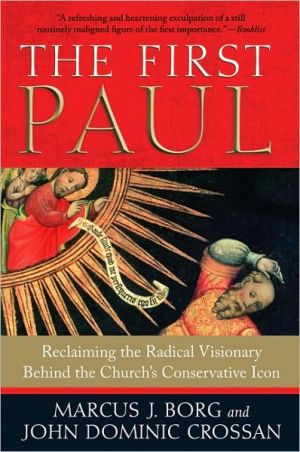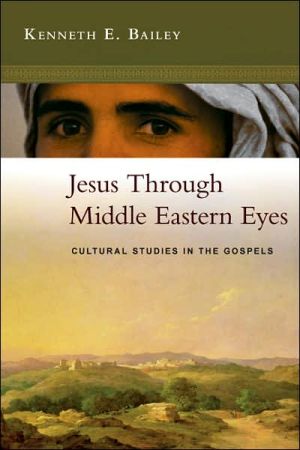Jesus and Muhammad: Parallel Tracks, Parallel Lives
Jesus and Muhammad are two of the best known and revered figures in history, each with a billion or more global followers. Now, in this intriguing volume, F.E. Peters offers a clear and compelling analysis of the parallel lives of Jesus and Muhammad, the first such in-depth comparison in print.\ Like a detective, Peters compiles "dossiers" of what we do and do not know about the lives and portraits of these towering figures, drawing on the views of modern historians and the evidence of the...
Search in google:
Jesus and Muhammad are two of the best known and revered figures in history, each with a billion or more global followers. Now, in this intriguing volume, F.E. Peters offers a clear and compelling analysis of the parallel lives of Jesus and Muhammad, the first such in-depth comparison in print. Like a detective, Peters compiles "dossiers" of what we do and do not know about the lives and portraits of these towering figures, drawing on the views of modern historians and the evidence of the Gospels and the Quran. With erudition and wit, the author nimbly leads the reader through drama and dogma to reveal surprising similarities between the two leaders and their messages. Each had a public career as a semi-successful preacher. Both encountered opposition that threatened their lives and those of their followers. Each left a body of teaching purported to be their very words, with an urgent imperative that all must become believers in the face of the approaching apocalypse. Both are symbols of hope on the one hand and of God's terrible judgment on the other. They are bringers of peace--and the sword. There is, however, a fundamental difference. Muslims revere Muhammad ibn Abdullah of Mecca as a mortal prophet. Although known as a prophet in his day, the Galilean Jew Jesus was and is believed by his followers to have been the promised Messiah, indeed the son of God. The Quran records revelations received by Muhammad as the messenger of God, whereas the revelations of the Gospels focus on Jesus and the events of his life and death. A lasting contribution to interfaith understanding, Jesus and Muhammad offers lucid, intelligent answers to questions that underlie some of the world's most intractable conflicts. Publishers Weekly Peters, New York University professor emeritus, adds this short book juxtaposing the lives of the central figures of Christianity and Islam to his already prolific offerings on comparative religion. Most chapters address one aspect of each prophet's life: the setting for Jesus' life and then Muhammad's in chapter one, a brief biographical background on Jesus and then Muhammad in chapter two, and so on. Natural similarities and potentially enlightening differences appear (such as Muhammad's becoming the sovereign of his own Islamic nation while Jesus, who never held a governance position as Muhammad did, was a "man-God, a human voice with the gravity of the Divine"), but not much more is done with them. Peters seems particularly and inexplicably dismissive of certain commonly held beliefs among Muslims and Muhammad biographers, among them Muhammad's age (Muslim tradition says he was 40); the circumstances of his marriage to his first wife, Khadija (most sources say it resulted from Khadija's own proposal); and Peters's stubborn habit of describing the Qur'an as poetry and Muhammad as a poet, although such a view is anathema in Islam or Islamic studies. Besides being somewhat dull, the book is short on useful conclusions. (Nov.)
1. Clearing the Ground2. The Settings3. Opening the Files4. The Critic at Work5. The Living Voice6. The Message: Jesus in Galilee7. The Message: Muhammad at Mecca8. Tragedy and Triumph9. A New Dawn: The Aftermath, The Legacy10. Epilogue: Spreading the Word A Guide to Further Reading Notes Index
\ Publishers WeeklyPeters, New York University professor emeritus, adds this short book juxtaposing the lives of the central figures of Christianity and Islam to his already prolific offerings on comparative religion. Most chapters address one aspect of each prophet's life: the setting for Jesus' life and then Muhammad's in chapter one, a brief biographical background on Jesus and then Muhammad in chapter two, and so on. Natural similarities and potentially enlightening differences appear (such as Muhammad's becoming the sovereign of his own Islamic nation while Jesus, who never held a governance position as Muhammad did, was a "man-God, a human voice with the gravity of the Divine"), but not much more is done with them. Peters seems particularly and inexplicably dismissive of certain commonly held beliefs among Muslims and Muhammad biographers, among them Muhammad's age (Muslim tradition says he was 40); the circumstances of his marriage to his first wife, Khadija (most sources say it resulted from Khadija's own proposal); and Peters's stubborn habit of describing the Qur'an as poetry and Muhammad as a poet, although such a view is anathema in Islam or Islamic studies. Besides being somewhat dull, the book is short on useful conclusions. (Nov.)\ \ \ \ \ Library JournalBillions of people revere and follow the teachings of Jesus and Muhammad. However, adherents may not be aware that these spiritual leaders possessed a similar life template or archetypal development. Peters (Middle Eastern & Islamic studies & religion, emeritus, New York Univ.; Islam: A Guide for Jews and Christians) offers a side-by-side comparison of the history and influence of these two pillars of monotheism. Not only does he examine holy texts (e.g., the New Testament and the Koran), but he also consults the work of historians. What emerges is a fascinating sketch of the message, mission, and legacy of the two prophets. Both carried out a public ministry in the face of opposition and persecution; both taught with urgency and referenced the forthcoming apocalypse. Peters, to his credit, underscores their differences, too. For instance, Muslims consider Muhammad to be a mortal prophet. Christians, however, deem Christ to be God incarnate. VERDICT This is an accessible yet erudite contribution to the field of comparative religion. While it's surely appropriate for public libraries, it will be especially relevant for academic libraries that support collections and curricula in religious studies. With a rich, annotated bibliography.—Brian Smith McCallum, Arlington Heights Memorial Lib., IL\ \
